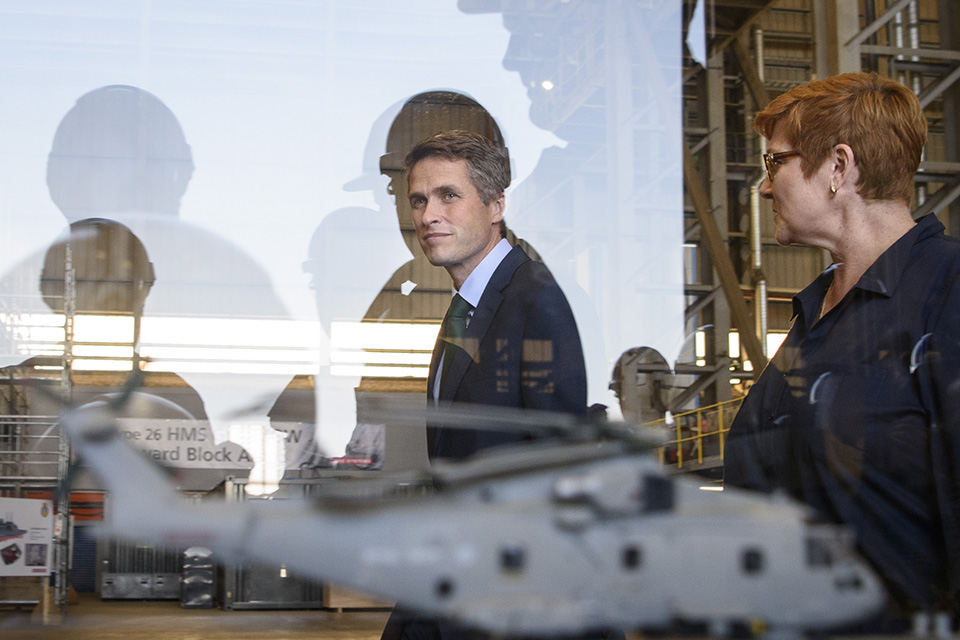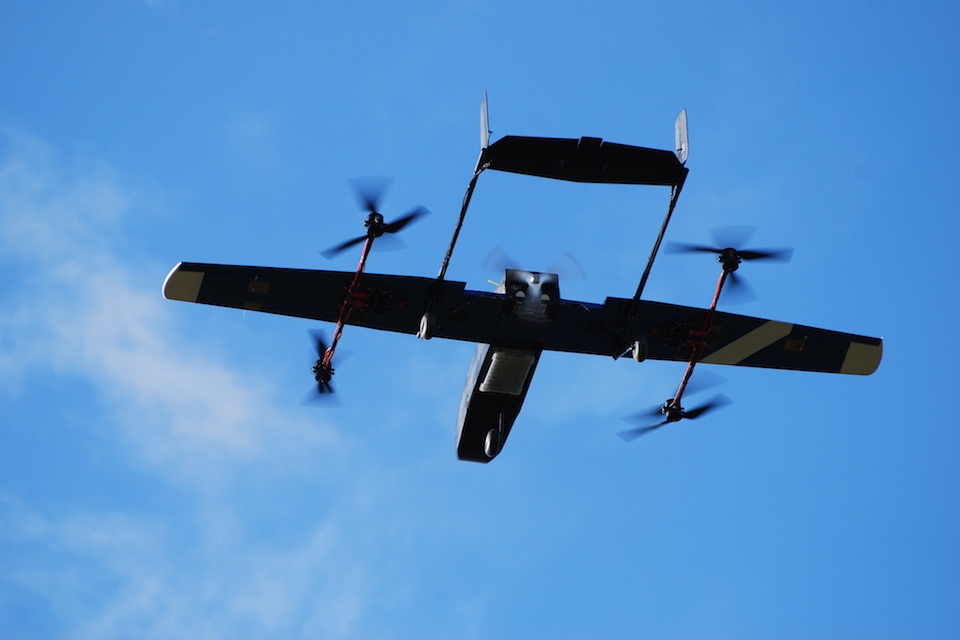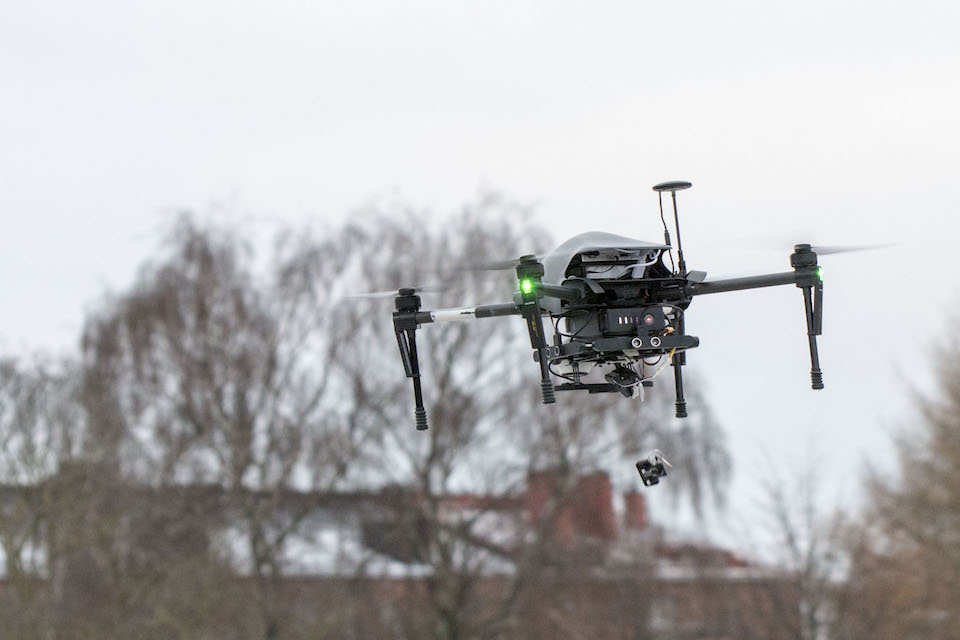News story: Defence Secretary and Australian Minister tour Scottish site building world-class warships as £1 billion is pumped into supply chain
Australia’s decision to choose BAE Systems to build the nine British-designed warships could be worth up to £20 billion, and has been hailed as the biggest Naval ship deal for a decade. The agreement has massive potential benefits across the entire existing Type 26 supply chain, which the Defence Secretary outlined has now seen investment of more than £1 billion across more than 80 companies.
Speaking during the visit to BAE Systems’ Clyde Shipyard with Minister Payne today, the Defence Secretary revealed the massive investment had already boosted family firms and British businesses across the nation, showing the importance of shipbuilding in every corner of the country, and its potential to support allies across the world.
Defence Secretary Gavin Williamson said:
This renaissance in British shipbuilding is great news for our major yards, but also for the whole defence industry, with millions being injected into so many businesses, both big and small, supporting and supplying our world-class warships. The Type 26 supply chain has now seen investment worth over £1 billion, and many of the businesses involved are now perfectly placed to benefit from Australia’s £20 billion build.
Australian Minister of Defence Ms Payne toured the shipyard where Britain’s new warship fleet is being constructed. Her Government’s ‘Global Combat Ship’ agreement, which was announced last month and will see nine of Britain’s cutting-edge ships built in Australia, is also expected to draw on the United Kingdom’s robust supply chain to support the construction of its fleet.

BAE Systems Chief Executive Charles Woodburn said:
Australia’s selection of the Type 26 Combat Ship for its Future Frigates programme reflects the world-leading anti-submarine warfare capabilities these ships will deliver to the UK and to the Commonwealth.
In the 12 months since cutting steel on the first of the UK ships, we have committed more than £1 billion with supply chain companies, large and small – vital partners in delivering cutting edge capability to the Royal Navy, supporting thousands of jobs and contributing to national prosperity.
Our recent success on the Australian Future Frigate programme will not only deliver huge benefits for Australia, supporting jobs, local industry and sovereign capability – it will also generate opportunities for companies in our UK supply chain.
The pair’s visit to the Govan shipyard comes almost exactly a year to the day since the first steel was cut on HMS Glasgow, marking the beginning on the build of Britain’s first Type 26 frigate.
More than 80% of the total equipment spend has now be committed to the supply chain, and more than 80 companies have secured contracts to supply material for the first three ships.
Sixty-four of those companies are based across the United Kingdom, supporting more than 4000 jobs. The regional reach of the Type 26 ship helped secure the Australian deal for BAE Systems, with the success stories across Britain expected to be replicated in Australia.
The naval contract, which is the biggest surface ship deal in the past decade and saw the UK chosen ahead of Italian and Spanish firms, is the first time a British ship design has been exported since the 1970s.
The deal will secure more than 4,000 jobs in Australia and boost Britain’s export economy for generations to come, opening a raft of opportunities for British firms to offer specialist knowledge and capabilities.
The 6,900 tonne multi-mission warships are designed to support anti-submarine warfare and a whole range of other operations anywhere in the world. They will form a key part of the Royal Australian Navy.
The formidable frigates will also allow interoperability between Australian and Royal Navy ships amid a climate of intensifying threats around the world, especially in the Middle East and the Asia-Pacific regions.
The visit to the Scottish shipyard also came on the day the Defence Secretary announced plans to ensure that thousands of troops resident in Scotland are not left out of pocket following recent tax rises from the Scottish Government.

